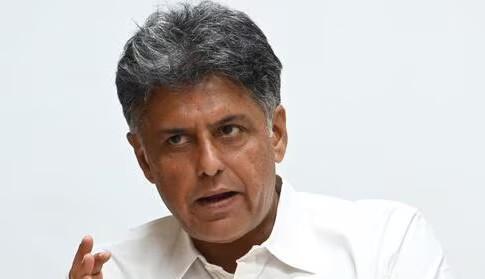
Against Constitution: Tewari on bills to remove jailed PM, CMs
The Indian Parliament recently witnessed a significant development when Union Minister Amit Shah presented three bills aimed at removing Prime Ministers, Chief Ministers, and Ministers facing serious criminal charges from their positions. The proposed legislation has sparked a heated debate, with many expressing concerns about its potential impact on the country’s democracy. One such vocal critic is Congress MP Manish Tewari, who has vehemently opposed the bills, terming them “against the basic structure of the Constitution.”
According to Tewari, the Indian Constitution is clear in its stance on the matter of guilt and innocence. “Indian Constitution says that one is innocent until proven guilty,” he emphasized. This fundamental principle is enshrined in the Constitution’s Article 21, which guarantees the protection of life and personal liberty to every citizen.
The Congress MP’s concerns are not unfounded. The proposed bills, if passed, would provide a mechanism for the removal of public officeholders who are facing serious criminal charges, even if they have not been convicted of a crime. This could lead to a situation where individuals are removed from their positions based on allegations rather than proven guilt.
Tewari also highlighted the potential for misuse of state instrumentalities under these bills. “The potential for misuse of state instrumentalities under these bills is enormous,” he warned. With the power to remove public officeholders at the whims of the government, there is a risk of authoritarianism and abuse of power. This could lead to a situation where the government uses these bills to silence opposition voices and consolidate its own power.
The proposed bills have been criticized by various opposition parties, including the Congress, the Trinamool Congress, and the Left parties. They argue that the bills are an attempt to undermine the independence of institutions and the rule of law. The bills, they claim, are a threat to the country’s democratic fabric and could lead to a decline in the country’s political stability.
The government, however, has defended the bills, claiming that they are necessary to ensure that public officeholders are held accountable for their actions. According to the government, the bills would help to prevent corruption and ensure that individuals who are guilty of serious crimes are removed from their positions.
While the government’s intentions may be noble, the proposed bills raise several concerns. Firstly, there is a risk of abuse of power and misuse of state instrumentalities. Secondly, the bills could lead to a decline in the country’s political stability and undermine the independence of institutions. Finally, the bills could lead to a situation where individuals are removed from their positions based on allegations rather than proven guilt.
In conclusion, while the proposed bills may be an attempt to address the issue of corruption and ensure accountability among public officeholders, they are fundamentally flawed. The bills are against the basic structure of the Constitution and could lead to a decline in the country’s democratic fabric. It is essential that the government reconsiders its stance and ensures that any legislation is in line with the country’s constitutional values and principles.






